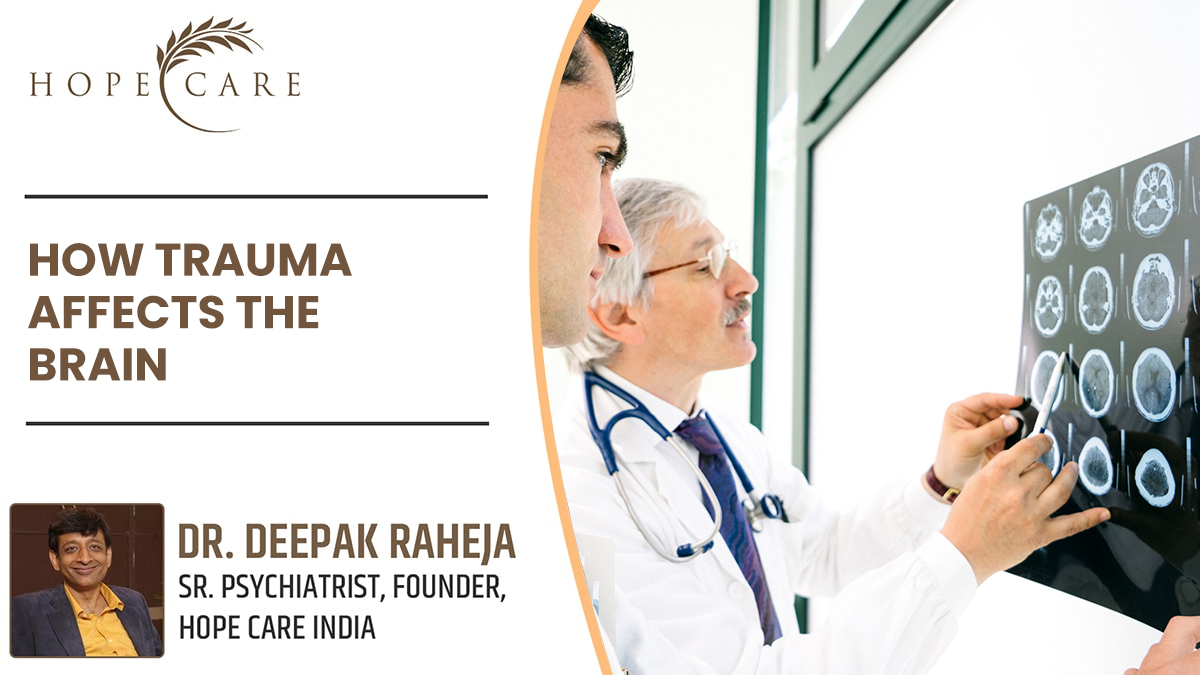How does Trauma Affect the Brain?
Research says that 69 million people (95% CI 64-74 million) experience a traumatic brain injury yearly. It demonstrates how crucial it is to raise awareness of brain injury. The brain governs every action we take, from taking a breath to exhaling it.
Therefore, understanding TBI is essential to maintaining our brain’s stress-free and healthy state.
This article has demonstrated how brain trauma alters, its resulting alterations, and the healing process.

How Does the Brain Change Its Response After Trauma?
Brain trauma can occur from various events, including sexual assault, vehicular accidents, natural catastrophes, marital violence, and child abuse. As a result, they experience continuous flashbacks in the brain and the cell repeatedly records them.
The brain includes Three main parts that change their way of working after brain trauma.
-
Amygdala:

The amygdala serves as the brain’s central processing unit for threatening and frightened inputs.
The amygdala becomes overactive after brain trauma. People who have experienced emotional brain trauma display more anxiety about traumatic situations than others.
-
Hippocampus:
The hippocampus is crucial for memory retention and learning. Studies have indicated that it is impacted by several neurological and mental conditions, including brain trauma.
The hippocampus becomes less active after brain trauma. At that point, the brain is unable to distinguish between the real traumatic experience and the recollection of it. Things that bring back memories of traumatic situations are interpreted as threats by it.
-
Prefrontal Cortex:
The prefrontal cortex plays a central role in cognitive control functions like influencing attention, impulse inhibition, prospective memory, and cognitive flexibility. After brain trauma, the prefrontal cortex becomes suppressed and you’re less capable of controlling your fear. Hence, stuck in a purely reactive state.
Changes in the Daily life of a Traumatic Person
A life with any brain disorder is challenging. Our brain goes through several changes causing stress, depression as well as anxiety.
You could feel exhausted when your brain is exerting so much energy to defend you from external threats. It can be challenging to gather the energy necessary for everyday obligations or self-care tasks. As a result, brain-injured individuals are never motivated.
Also, the person puts a strain on communication as the brain cannot function well. The other hurdles in the life of a Traumatic person are:
- Getting trouble making decisions.
- Unable to Concentre, think, or learn.
- Panic Attacks.
- Always feel anxiety or irritation.
- Getting nightmares or flashbacks.
- Unable to memorize things.
Process of Healing
Our brains are very flexible. Neuroplasticity, or the brain’s capacity to create new connections, explains how we can rewire our brains to undo the negative consequences of brain trauma.
Even though recovering from brain trauma is a challenging process, you are altering the way your brain functions by creating new neural pathways, expanding the capabilities of specific regions, and solidifying connections. The same mechanism enables us to develop and change as a result of learning.
You can rewire and retrain your brain to counteract the consequences of brain trauma while recuperating. You can recover from brain trauma with support and therapeutic techniques over time.


